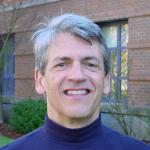Professor Arthur M. Farley retires

Professor Emeritus Arthur M. Farley has made major contributions to the field of computer science during his 37 year tenure in the Department of Computer and Information Science. Dr. Farley has published over 70 research articles in academic journals and conference proceedings in the areas of artificial intelligence and applied graph theory. Dr. Farley's research in artificial intelligence addresses problems in cognitive modeling, problem solving and planning, qualitative modeling of physical and economic systems, and argumentation. In his inter-disciplinary research, he collaborates with faculty members in departments of psychology, economics and human physiology. His research in applied graph theory considers problems in optimal graphs and algorithms for various communication processes and graphs immune to certain fault patterns. He has participated in several federally-funded research projects investigating computer networks topology and protocols.
Dr. Farley served several times as Acting Department Head of the Computer and Information Science Department. He served as a member of UO's Institutional Review Board for Protection of Human Subjects for many years and, more recently, as a member and chair of the university-wide Environmental Issues Committee.
As the longest-serving member of Computer and Information Science Department's faculty, Dr. Farley has been a pillar of stability in the department, significantly contributing to its intellectual climate and educational mission. He has developed a number of courses, for instance, pioneering the inclusion of Computer Ethics and Science of Computing courses in our curriculum. Dr. Farley has expanded the former course into a component of the successful NSF-funded project CPATHi18n: Internationalization of Computer Science Education: the Pacific Rim Community Model.
Dr. Farley has also been a very visible member of the wider Eugene environmental community as the Conservation Chairman of the Lane County Audubon Society, a founder of the Friends of Eugene-Springfield Habitats, and a member of City of Eugene Planning Commission.
Art's active participation in the departmental life will be sorely missed, as he temporarily leaves Eugene for a well-deserved year in Paris. We hope for several more years of Art's involvement in the department after he returns.